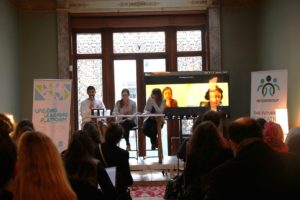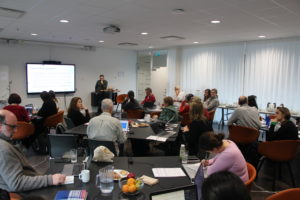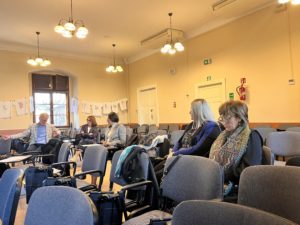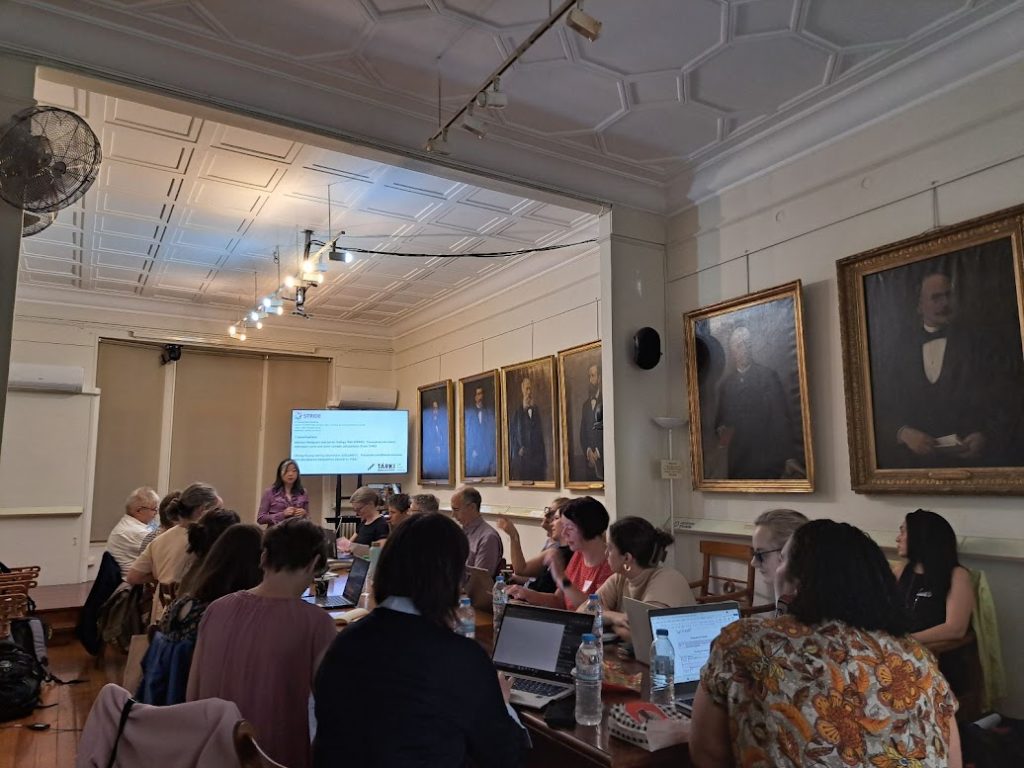On May 13, 2025, the Roehampton Team held their first national stakeholder meeting for the STRIDE Project at the University of Roehampton in London, England. The team consists of Professor Bryony Hoskins, post-doctoral researcher Khuyen Dinh, and research assistant Sofia Ferrer. This meeting included academics, researchers, and stakeholders involved in education throughout England, which facilitated thoughtful and critical conversations regarding the national report and the education climate more generally.
To begin, the Roehampton team introduced the STRIDE project and presented the quantitative findings from the national report. The quantitative section of the report aimed to measure the long-term impacts of Sure Start. Sure Start, implemented in 1998 to mitigate the gap between children facing multiple disadvantages and their more affluent peers, was the British Government’s flagship program for early childhood development. Through initiatives including outreach services, healthcare, play and education, the Sure Start policy attempted to break patterns of disadvantage that often diminish life chances and lead to long-term societal issues. Sure Start represents a significant financial investment designed to benefit children, parents, and communities by increasing the availability of childcare, improving young children’s health and emotional development, and supporting parents in both parenting skills and employment.
The Roehampton Team’s national report aimed to measure the impact of Sure Start by examining student’s post-16 qualification results. These results include A-Level qualifications, technical and vocation qualifications or level three equivalences. In the UK these qualifications are received post-secondary school and indicate advanced achievement, providing a pathway to university and further education. The report findings indicate some support for the effectiveness of Sure Start on the achievement of post-16 qualifications, but these were less strong than medium-impact data in previous studies have suggested. Given these findings, the stakeholders suggested some ways that the study could be improved given their experience researching and completing similar reports. Before this meeting, one stakeholder, based on his expertise in the research methodologies, also reviewed the systematic report providing pertinent feedback for improvement. This systematic report investigates early childhood education policies in an attempt to discern if these reduce educational inequalities between children facing intersectional disadvantages and their more affluent peers.
Due to limitations in our first national stakeholder group meeting, we will hold another meeting in the Summer to discuss quantitative updates and qualitative findings. We look forward to more fruitful discussions regarding the project and developing additional ways to disseminate our critical work to educational stakeholders throughout England.












